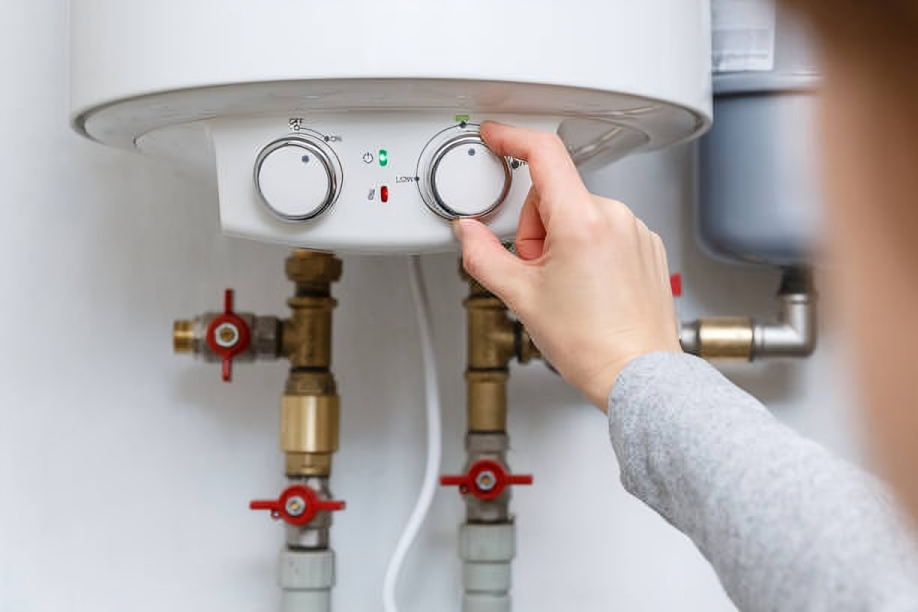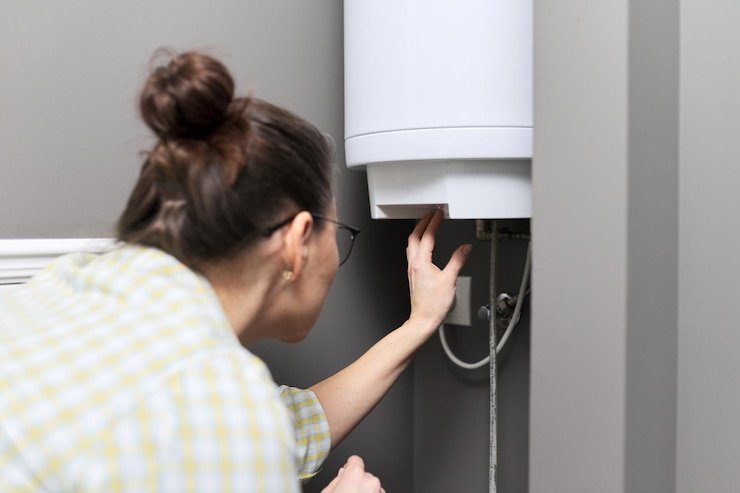The Evolution of Water Heaters: Innovations Efficiency and Sustainability.
Water heaters are essential appliances in modern households, providing hot water for various daily activities, including bathing, cooking, and cleaning. Over the years, advancements in technology and increasing environmental awareness have led to the development of more efficient and sustainable water heating solutions. In this article, we explore the evolution of water heaters, from traditional storage tanks to innovative tankless and solar-powered systems, highlighting their benefits, features, and considerations for consumers.
To Know More About It Please Click Here
Traditional Storage Tank Water Heaters
Traditional storage tank water heaters have been a staple in homes for decades. These systems consist of an insulated tank that stores heated water until it is needed. When hot water is used, cold water enters the tank to be heated, maintaining a constant supply of hot water. While storage tank water heaters are relatively inexpensive and easy to install, they can be less energy-efficient, as they continuously heat water even when not in use, leading to standby heat loss.
Tankless Water Heaters
Tankless water heaters, also known as on-demand or instantaneous water heaters, have gained popularity for their energy efficiency and space-saving design. Unlike storage tank heaters, tankless systems heat water directly as it passes through a heating element, eliminating the need for a storage tank. This results in significant energy savings, as there is no standby heat loss associated with tankless water heaters. Additionally, tankless systems provide an endless supply of hot water, making them ideal for households with high hot water demand.
Heat Pump Water Heaters
Heat pump water heaters utilize heat pump technology to extract heat from the surrounding air and transfer it to the water in the tank. This energy-efficient method of water heating can significantly reduce energy consumption compared to traditional electric water heaters. Heat pump water heaters are most effective in warm climates with ample air space, as they rely on ambient air temperature to operate efficiently.
Solar Water Heaters
Solar water heaters harness the power of sunlight to heat water for residential use. These systems typically consist of solar collectors, which absorb sunlight and transfer heat to a fluid (such as water or antifreeze) circulating through the system. The heated fluid is then pumped to a storage tank, where it is used as needed. Solar water heaters can be either passive or active systems, with active systems employing pumps or controls to circulate the heated fluid. While solar water heaters have higher upfront costs, they offer long-term savings on energy bills and reduce dependence on fossil fuels.
Considerations for Choosing a Water Heater
When selecting a water heater for your home, consider the following factors:
- Fuel Type: Water heaters are available in various fuel types, including electric, natural gas, propane, and solar. Choose a fuel type that aligns with your energy preferences and availability.
- Size and Capacity: Determine the appropriate size and capacity of the water heater based on your household’s hot water demand. Oversized or undersized water heaters can lead to energy waste or insufficient hot water supply.
- Energy Efficiency: Look for water heaters with high Energy Factor (EF) ratings or ENERGY STAR certification, indicating superior energy efficiency and potential savings on utility bills.
- Installation and Maintenance: Consider installation requirements, space constraints, and maintenance needs when choosing a water heater. Some systems may require professional installation or periodic maintenance to ensure optimal performance.
To Know More About It Please Click Here
Conclusion
Water heaters play a crucial role in providing comfort and convenience in modern homes. With advancements in technology and increasing emphasis on energy efficiency and sustainability, consumers have a wide range of options to choose from when selecting a water heating solution. Whether opting for a traditional storage tank, a tankless system, or a solar-powered heater, homeowners can find a water heater that meets their needs while minimizing energy consumption and environmental impact. By making informed choices and embracing innovative technologies, households can enjoy a reliable hot water supply while contributing to a greener, more sustainable future.








